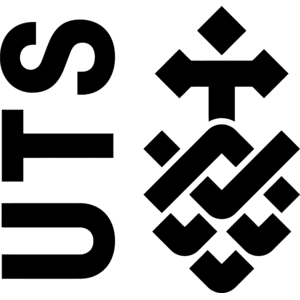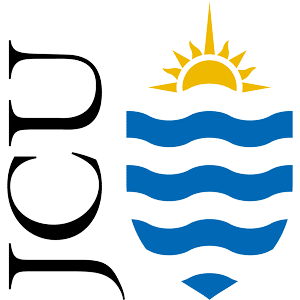Advance your career as an analyst with a short, medium or long university program.

Business analytics skills are in demand. Interesting, high-salary jobs are there if you earn a bachelor degree, graduate certificate, graduate diploma, master's degree or MBA. Choose from the best online courses in Australia.
Online Courses
For those new to university, a Bachelor of Business Analytics degree provides career foundations. The 3-year program covers essential subjects, from finance and marketing to AI, data management and predictive modelling.
This degree offers a broad spectrum of career paths. You can look for business analyst roles upong graduating, or use your skills in careers ranging from HR through to analytical consulting and data science.
Business graduates are in high demand across Australia, with a full-time employment rate of 84%.
A Logistics and Supply Chain Management major is available in Bachelor of Business degrees. The major typically forms part of a well-rounded undergraduate business program.
Alongside regular business subjects, students explore global logistics, operations management, procurement, and risk management. You develop analytical methods to improve efficiency, reduce costs, and lift customer satisfaction.
Graduates are prepared for various business roles but are especially well trained for jobs such as logistics analyst, operations manager, and supply chain manager.
A Graduate Certificate in Analytics gives you the flexibility to focus on business analytics through choice of electives or design a more fundamental data analytics course.
With a wide selection of subjects available, you can create a business analyst course to match your skill and career goals. Example topics are analytics and business, big data management, professional consulting, data visualisation, and predictive modelling.
The 4-subject grad cert short course leads into a 12-subject Master of Analytics program should you wish to continue.
UNSW Online - Graduate Certificate in Analytics
The Graduate Certificate in Analytics at UNSW Online is designed for those seeking to develop data analytical capabilities for diverse employment opportunities. The program offers a fast-track option to complete in as little as 8 months part-time, with four courses delivered online in seven-week intensive blocks. It provides a pathway to further study in the Graduate Diploma in Analytics and the Master of Analytics, covering core subjects like programming, data analysis, and business analytics.
A Graduate Certificate in Business Analytics is one of the most popular business analysis courses. You effectively join a masters program and complete 4 of the 12 subjects.
An advantage of doing a business graduate certificate is that you don't have to commit to a full masters without trying the program first. Entry requirements may also be relaxed, such as not requiring a relevant degree or experience.
With flexible online grad cert courses, you can also pursue a smash-n-grab strategy. Instead of foundation subjects, just choose the most career-relevant topics.
RMIT Online - Graduate Certificate in Business Analytics
The RMIT Online Graduate Certificate in Business Analytics is an 8-month program with three core courses and one elective, focusing on developing analytical skills for business decision-making. This 100% online part-time program enhances business performance understanding in various areas like finance, marketing, and supply chain. It also provides a pathway to master's programs in Business Administration or Supply Chain and Logistics Management.
A Graduate Certificate in Supply Chain and Logistics Management is a preparatory course for jobs such as logistics coordinator, operations manager, transport manager, and supply chain manager.
Topics student explore in this course include supply chain management principles, business analytics, supply chain modelling and design, and project management.
Students come away better equipped to strategically use information and resources to improve efficiency in logistics, procurement, and business strategy.
RMIT Online - Graduate Certificate in Supply Chain and Logistics Management
The RMIT Online Graduate Certificate in Supply Chain and Logistics Management is an 8-month part-time program, focusing on foundational aspects of logistics operations and coordination. The program prepares students for diverse careers in supply and procurement, freight transport, and warehousing, with a focus on practical, industry-relevant skills. It includes four core courses and serves as a pathway to the Master of Supply Chain and Logistics Management.
A Graduate Diploma in Analytics may provide the ideal amount of training for you. The online course consists of 8 subjects that you complete in 16 months of part-time study.
An analytics course contains a mixture of technical and business subjects. You're able to design your program to meet your learning goals, balancing data analysis with business management and communication content.
The program prepares students for diverse roles, from data analyst to business intelligence analyst, digital marketer, and people analytics consultant.
UNSW Online - Graduate Diploma in Analytics
The Graduate Diploma in Analytics from UNSW Online allows you to design a training program. Choose 8 subjects from 14 contained in the UNSW master's degree. You can also elect to do Marketing Analytics and Human Resources Analytics majors, among others. Each subject is completed part-time over 7 weeks. They include big data management; managing people, analytics and change; analytics and business; and data visualisation and communication.
An online Master of Analytics is a well-rounded course that combines essential data analytics training with application to business management problems.
The degree opens up career opportunities in multiple directions, which is important in the face of technological change. You should come away confident in your data analysis skills and ability to use data to generate value.
Graduates of the program are well positioned to do roles ranging from business analyst to directing analytical activities and being a decision maker.
UNSW Online - Master of Analytics
The UNSW Online Master of Analytics, achievable in two years part-time, comprises 12 subjects, including a choice of specialisations in General, Human Resource or Marketing Analytics. This online program covers fundamental analytics skills applicable to a variety of industries. Students have the flexibility to select electives that match their career goals, enhancing their expertise in specific areas. Six program intakes are available annually.
A Masters in Business Analytics is a 12-subject course with technical, mathematical and business elements. Classes are mostly made up of professionals with backgrounds in technology and/or business.
A business analysis masters gives you the opportunity to (a) build data handling skills and (b) learn how to leverage data insights to inform business decisions.
Topics you may cover in the program include data processing, data visualisation, machine learning, customer analytics, financial analysis, and data ethics and regulations.
A Masters in Logistics and Supply Chain Management can lead to job opportunities in fields such as logistics, transportation, procurement, and manufacturing.
Students explore applied optimisation techniques, transport and distribution, inventory management, procurement and sourcing, and global supply chain management.
This branch of study is about strategic and practical decision-making using evidence. Technical content in the area of analytics is included but generally in a less intensive fashion than other courses listed.
RMIT Online - Master of Supply Chain and Logistics Management
The RMIT Online Master of Supply Chain and Logistics Management is a comprehensive 2-year part-time program. It offers 12 core courses, focusing on modern supply chain principles, business analytics, and sustainable practices. The program is designed for professionals seeking to enhance their expertise in supply and procurement, freight transport, distribution, and warehousing, providing them with the skills to lead in a rapidly evolving industry.
Marketing analytics is an important business field in which you can carve out an interesting and lucrative career. You can learn marketing analytics as part of a business analytics masters degree.
Topics you may study in a marketing analysis major include foundation of marketing analytics, managing customer analytics, social media and digital analytics, and the practical application of marketing empirics.
Graduates of the program still acquire general analysis skills for working across industries and sectors.
UNSW Online - Master of Analytics (Marketing)
The UNSW Online Master of Analytics (Marketing) is a two-year program that blends marketing with analytics. Delivered in 8-week intensive blocks, it equips students with skills to analyse data for effective marketing strategies. The program includes 12 subjects, focusing on core analytics and marketing analytics electives, culminating in a capstone project. This specialisation prepares students for marketing roles, leveraging data-driven insights for strategic decision-making.
For every business analyst in an organisation, there may be many more people who commission, use, or act on the analyst's results. An MBA in Business Analytics is orientated more towards management than technical training.
You can enter an MBA (Business Analytics) program with or without an analytics background. The degree prepares analysts for executive roles and executives for analytic-focused positions.
With this degree, you gain a general business education while also building analytical knowledge and skills.
UTS Online - MBA (Business Analytics)
The UTS Online Master of Business Administration, a two-year part-time program, offers a Business Analytics specialisation. It covers 12 subjects including Foundation Studio, where students apply core subject skills to real-world analytics settings. Other key subjects include Data-Driven Decision-Making, Customer Analytics, Data Visualisation, and Data Ethics and Regulation. This program is designed for professionals to develop strategic leadership and in-depth analytical skills.
James Cook University - Online MBA (Global)
The online Master of Business Administration Global at JCU is a 24-month part-time program with a focus on data-driven decision making and global strategies. Comprising 12 subjects, the course offers in-depth learning in data analysis, marketing strategy, and organisational leadership. Designed for busy professionals, it allows students to study one subject every 7 weeks.
What You'll Study (Course Structure)
A business analytics course can cover any of numerous subjects from this large field, including data processing, programming languages, customer analysis, marketing analytics, and data visualisation. Also, expect to get your hands dirty, and build practical skills, with applied projects using real data.
You'll become proficient at using data to generate useful insights for business leaders. A business analysis course may be ideal if you're good with numbers but don't want to do the heavy coding required in data science. Most postgraduate students have a business, technology or mathematical background.
Learning Outcomes
A good business analysis course will provide you with tools to access, manipulate and present data so as to understand business functions and inform business decisions. For masters programs, graduates should have the analytical skills and problem-solving ability to complete these kinds of tasks:
- Apply customer data and insights for decision-making to increase customer value.
- Describe machine learning methods and apply to real business problems.
- Explain how information systems may be used to deliver organisational value.
- Import relevant data into a SAS environment for manipulation, analysis and reporting.
- Maintain a database and construct Structured Query Language (SQL) statements.
- Use data visualisation methods to navigate and represent large data sets.
- Use quantitative methods to assess customer value.
- Write custom programs using Python and/or R for data analysis and reporting.
For shorter courses, you'll mainly gain introductory concepts to help navigate the industry. Longer programs present an opportunity to develop key practical skills.
Related: Business Analyst: Job Description, Role and Skills
Career Opportunities
Graduates of these university courses are typically employed as business analysts, including junior and senior roles, and also as business intelligence analysts and data analysts.
In Australia, employment of Management and Organisation Analysts is projected to surge by 15.6% over 5 years to 123,900 by 2028. Jobs for ICT Business and Systems Analysts are projected to grow by 12.7% to 58,100. Source: Jobs and Skills Australia.
Job titles include: business analyst, business data analyst, business intelligence analyst, customer insights analyst, data analyst, e-commerce analyst, financial analyst, intelligence analyst, IT business analyst, management consultant, marketing analyst, operations analyst, predictive modeller, pricing analyst, risk analyst, retail analyst, supply chain analyst, data scientist.
Entry Requirements
Entry requirements are fairly standard for university courses. But you may benefit from mathematical achievement. For bachelor degrees, your ATAR counts – with possible adjustments for high scores in mathematics and information technology subjects.
For postgraduate programs, you generally need a degree, preferably in a related business or technology discipline. If you start with a graduate certificate, admission standards may be more relaxed and allow for qualification based on professional experience.
FAQs
Business analysts help organisations identify ways to improve efficiency, increase profitability, and achieve their goals. They do this by analysing data, identifying trends and patterns, and making recommendations based on their findings.
Analysts may work with stakeholders within the organisation, such as executives, managers, and subject matter experts, to understand the needs and challenges of the business. The ultimate goal is to help the organisation make better decisions and take actions that will drive business value.
Business analytics is in high demand in Australia. Job ads are numerous. Businesses are taking advantage of opportunities from big data, which translates to surging demand for analytical skills and professionals who can deliver data insights.
Australia is an advanced economy with strong business competition in digitally-orientated sectors such as information technology, banking, finance, digital marketing, health care and human resource management. The fundamentals point to ongoing high demand for graduates of business and data analytics programs.
Business analytics is a moderately hard major. Compared with data science, the programming demands are far lower and you don't need to know nearly as many advanced mathematical techniques. It requires all-round ability as opposed to being extremely difficult.
You study analytics as part of a business program. Along with Arts, Business is one of the most popular fields of study at Australian universities. A business school will not normally make one specialisation much harder than the rest of the program.
Difficulty ratings
In terms of difficulty levels for different aspects of the discipline, here are the ratings:
- Difficulty of getting a degree: 8 (out of 10)
- Logic and maths skills: 8
- Business strategy skills: 7
- Communication and teamwork: 6
Source: Just Business Today
Something worth considering is that, to develop strong data skills, business analysts need to complete postgraduate courses or do other advanced training with large amounts of programming content. If this is not for you, career opportunities in the field may be limited to relatively non-technical roles.
Yes, a degree in this field can be a good choice for someone interested in a career in data analysis and management. Business analytics combines elements of business, technology, and data science, and can lead to exciting and rewarding careers. Examples of careers for graduates include business intelligence analyst and management consultant. These roles can be lucrative while offering opportunities for growth and advancement.
Four common types of business analytics are:
- Descriptive: Summarise data and describe what happened in the past, such as calculating summary statistics and creating visualisations to help understand the data.
- Diagnostic analytics: Dig deeper into data and identify patterns and relationships, such as using tools like regression analysis to identify trends and correlations.
- Predictive analytics: Forecast future events or outcomes, such as using machine learning algorithms to make predictions based on historical data.
- Prescriptive analytics: Recommend actions or decisions based on data, such as using optimisation algorithms to find the best solution.
Business analysts often use mathematical techniques to analyse data and make business decisions. However, not all business analysis involves a lot of maths. The amount varies depending on the application.
Some tasks may only require basic maths skills, while others may require more advanced knowledge of statistical and computational techniques. Business analytics is not just about maths, but also about using data to gain insights and make informed decisions.
For a career in this field, having a strong foundation in mathematical concepts such as statistics, algebra, and calculus can be helpful. Additionally, many analytical tools and software programs require a basic understanding of maths to use them effectively.
Business analysts typically do not do coding as part of their job. But they may have a working knowledge of programming languages and be able to understand code written by software developers.
Their main focus is on analysing data and business processes to help organisations improve operations and make better informed decisions. They may use tools like spreadsheets and specialised software for analysis. But they are not typically responsible for writing code.
Some professionals may have a background in computer science or a related field, and may be proficient in coding. It ultimately depends on the specific role and responsibilities.














